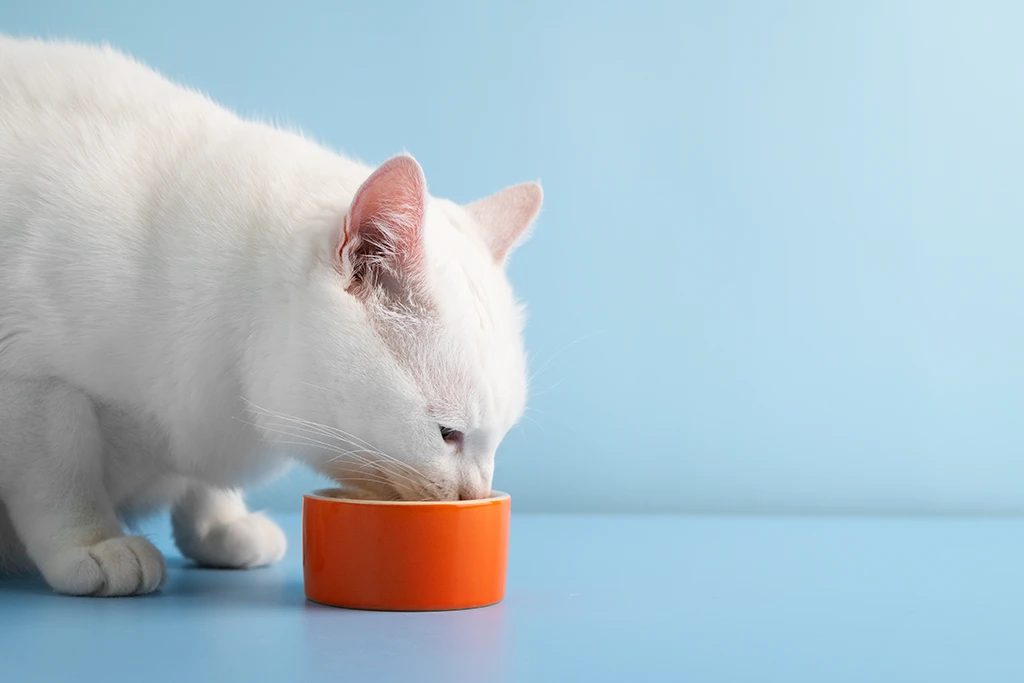

For pet parents looking for ways to enhance their pet’s well-being, natural alternatives to address issues such as anxiety, arthritis, skin conditions, or other ailments affecting their pet’s quality of life are great options. Understanding the significance of a pet’s comfort and happiness is essential for pet owners, and observing them in discomfort is challenging. Recently, many pet owners have begun to consider CBD as a potential solution for relief.
Cannabidiol (CBD), a natural compound derived from hemp, is gaining attention in the pet wellness community due to its therapeutic properties. As a gentler alternative to traditional medications, CBD offers a promising option that typically has fewer negative side effects.
CBD is administered in various forms, including soothing oils and palatable treats designed for pets. It interacts with the endocannabinoid system in animals, which helps alleviate pain, reduce anxiety, and enhance overall mood and well-being.
By exploring the benefits of CBD for pets, pet parents develop a safe and effective routine tailored to their pet’s specific needs, promoting a healthier and happier life for their furry friend.
Table of Contents
ToggleCBD, short for cannabidiol, is one of the beneficial compounds found in the hemp plant. It’s a non-psychoactive component, meaning a dog or cat does not get “high.” Instead, CBD works by interacting with the endocannabinoid system (ECS)—a fancy way of saying the system that helps regulate things like mood, pain, and immune response in humans and animals alike.
Early research and studies as discussed by Cornell University hint at CBD’s ability to offer symptom relief for issues like chronic pain, anxiety, and even seizures in pets. For pet parents looking to give their four-legged pals a natural option, CBD oils, and treats are an exciting alternative, especially when traditional medicines are not cutting it.
Unlike some CBD products for humans, CBD pet products have only trace amounts (0.3%) of THC, the active ingredient in cannabis that causes psychoactive effects. THC isn’t safe for pets, so always double-check that any CBD oil, treat, or capsule for a pet complies with THC limitations.
A study on the over-the-counter commercial veterinary hemp supplements in the USA showed that while all analyzed veterinary hemp products were below the federal limit of 0.3%, they have variable CBD concentrations and contain heavy metals, highlighting the need for proper labeling and dosing instructions before use (Wakshlag, J., et al., 2020).
Wondering if CBD is right for a pet? Below is a quick rundown of common chronic conditions that benefit from a consistent CBD regimen.
CBD’s anti-inflammatory properties make a real difference for pets struggling with arthritis and joint pain. A regular CBD schedule eases inflammation, reduces pain, and helps an arthritic pet move a little more comfortably. Think of it like giving them an extra pep in their step! A study by Verrico, C., et al. (2020) showed that “CBD significantly decreased pain and increased mobility in a dose-dependent manner for dogs with osteoarthritis, supporting its safety and therapeutic potential.”
Some dogs and cats get stressed out by fireworks, thunderstorms, or even just being left alone. With its calming effects, CBD helps soothe anxious pets. Especially when dosed about 30-60 minutes before a known stressor. A study by Hunt, A., et al. (2023) on pet anxiety showed that “A single dose of CBD-free distillate can significantly reduce canine stress during separation and car travel, with varying effects depending on the measure and test.”
Managing epilepsy and seizures in pets is tough, but CBD is emerging as a promising option. Early studies show it reduces the frequency and intensity of seizures in some pets, providing a natural complement to traditional treatments. The study by McGrath, S., et al. (2019) showed that “Oral CBD administration in dogs with idiopathic epilepsy resulted in a 33% reduction in seizure frequency.”
For pets with chronic skin issues or allergies, CBD’s soothing, anti-inflammatory properties reduce irritation and help them feel comfortable in their skin again. Topical CBD products are especially useful here, as they target affected areas directly. A study by Loewinger, M., et al. (2022) showed that “CBD/CBDA as an adjunct therapy decreased pruritus in dogs with atopic dermatitis, but not skin lesions.”
Friendly Reminder: Before starting a pet on a CBD regimen, have a quick chat with the pet’s veterinarian to ensure it’s a good fit, especially if they’re already on other meds.
When it comes to CBD for pets, consistency is key! By crafting a CBD schedule and sticking to it, pet parents help their pets experience the full therapeutic benefits of CBD. To get started, read the guidelines below.
Every pet is different, and starting with a low dose lets pet parents monitor their pet’s response to CBD. A typical starting dose is 0.2mg per pound of the pet’s body weight.
Observe the pet’s reaction and adjust the dose incrementally. Keep a daily log of their behavior, symptoms, and any noticed changes —this helps pinpoint the optimal dosage. And don’t forget, the pet’s veterinarian is a valuable resource to guide dosing adjustments along the way.
CBD works best with regular dosing, so aim to give it to a pet twice a day (morning and evening). A set schedule helps maintain stable CBD levels in their system, making it easier to manage chronic conditions.
Situational Use: Sometimes, pet parents only need CBD for specific events, like a vet visit. In those cases, give a pet CBD 30-60 minutes before the stressful event to help calm their nerves without disrupting their routine.
Maintaining a proper dosing of CBD is crucial for a pet’s health. Click here to learn more about dosage guidelines for pets.

CBD for pets comes in a variety of forms, each designed to make dosing easy and enjoyable for pets and their parents. Picking the right one depends on the pet’s needs, lifestyle, and even their taste preferences. Here’s a quick breakdown to help pet parents decide.
CBD oils are the most versatile option out there. Simply add a few drops to the pet’s food, or, if they’re cooperative, administer directly into the pet’s mouth with a dropper for precise dosing. Oils allow for easy adjustments, so pet parents gradually find the right dose that works best for their pet. They’re great for pets who need consistent dosing and work well for dogs and cats alike.
If a pet is a bit picky, CBD treats are great options. Ideal for on-the-go dosing or quick rewards, CBD treats come in flavors pets love, like salmon, peanut butter, or bacon. Treats make the CBD experience a tasty one, and they’re perfect for pets who associate positive feelings with treats, making them a go-to for both daily doses and special occasions.
Got a pet with skin issues or a localized problem? Topical CBD is designed exactly for that. Apply it directly to irritated areas to deliver targeted relief. Topicals work well for pets dealing with itchy skin, rashes, or other surface-level irritations, giving them direct relief without ingestion. Perfect for pets who are not into taking oils or treats but still need the therapeutic benefits of CBD.
With a range of options available at Paws and Claws CBD, pet parents easily customize their pet’s CBD experience to suit their preferences and get the most out of every dose.
Monitor how a pet responds to the CBD regimen over time. Look for improvements in symptoms or any signs of discomfort. Regular check-ins with a veterinarian are crucial to keep everything on track.
Not all CBD is created equal. To keep a pet safe and ensure maximum effectiveness, choose high-quality, pet-specific CBD products. How? Read below.
Look for CBD products that have been tested by an independent lab. This confirms that what’s on the label is accurate and that the product is free of contaminants. Transparency is everything! Read the Certificate of Analysis (COA).
Organic products reduce the risk of exposing a pet to harmful chemicals. CBD from pesticide-free hemp is a win for both pet’s health and the environment.
The right pet CBD products are designed with pets in mind. CBD for pets often uses animal-safe carrier oils and flavors that are more palatable for dogs and cats, ensuring they don’t turn up their noses.
Choose reputable brands that prioritize transparency and quality. Brands like Paws and Claws CBD, Ellevet Sciences, and Honest Paws offer high-quality CBD products crafted specifically for pets, so pet parents are getting safe and effective products.
CBD oils, treats, capsules, and topicals each have their pros and cons. Oils allow for precise dosing, while treats and capsules are convenient for fuss-free administration.

Getting the pet’s vet on board with the pet’s CBD regimen is essential. They help in so many ways.
Determine Suitability: CBD isn’t right for every condition or pet, so they’ll help decide if it’s a good option.
Advise on Dosage: The pet’s vet offers personalized dosage guidance, especially if the pet has specific health needs.
Watch for Interactions: Some meds don’t mix well with CBD, so a vet’s input keeps things safe.
Provide Ongoing Support: Regular check-ins with the pet’s veterinarian helps adjust the CBD schedule as the pet’s needs change.
Setting up a CBD schedule for a pet involves more than just finding the right product. To tailor the experience to a pet’s unique needs, it’s helpful to keep a few additional factors in mind. Here are some essential considerations that impact how a pet responds to CBD and help pet parents make adjustments for the best results.
When it comes to CBD, size matters. Larger pets generally need higher doses to experience the same effects that smaller animals feel with a lower amount. Start with a small dose based on the pet’s weight and observe their response, gradually increasing if necessary. Additionally, certain breeds have specific sensitivities or respond differently to CBD, so it’s wise to check for breed-specific recommendations or consult a veterinarian who has experience with CBD.
Just like people, pets have different metabolic rates that affect how they process CBD. Some animals naturally metabolize CBD quickly, meaning the effects wear off faster, while others experience longer-lasting effects. If pet parents notice that their pet’s response to CBD fluctuates throughout the day, consider dividing the dosage into smaller, more frequent doses to maintain a consistent effect.
Senior pets or those with compromised immune systems respond to CBD differently than younger, healthier animals. Older pets metabolize CBD slower, which impacts the dosage and frequency needed for effective symptom relief. For senior animals, it’s best to start with a very low dose and monitor closely for any changes in behavior or comfort. Pets dealing with ongoing health conditions like arthritis or chronic pain benefit from a steady, consistent dosing schedule that’s slightly more intensive, while younger pets or those in good health only need CBD occasionally for anxiety or situational needs.
Creating a tailored CBD schedule for a pet is a game-changer when it comes to managing chronic conditions. By choosing high-quality, pet-safe products, following a consistent routine, and working closely with a veterinarian, pet parents help improve their furry friend’s quality of life naturally.
Ready to try CBD for a pet? Paws & Claws CBD is here to help with top-notch, pet-friendly CBD products that make dosing easy, effective, and enjoyable for pets. Explore today and take the first step toward a happier, healthier life for a best friend!
References

Table of Contents
Toggle